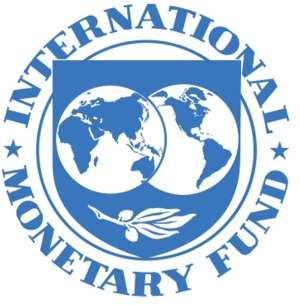
NOUAKCHOTT, Mauritania, October 31, 2014/African Press Organization (APO)/ -- A team from the International Monetary Fund (IMF) lead by Mercedes Vera Martin visited Nouakchott from October 20−30 to conduct discussions for the 2014 Article IV consultation.
At the end of the visit Ms. Vera Martin, issued the following statement:
“Mauritania's economic developments remained favorable, despite deteriorating terms of trade due to a decline in global iron ore prices. Economic growth is now estimated to reach 6.4 percent in 2014. A rebound in fishing activity and sustained activity in the mining sector would more than compensate for weaker performances in the oil and manufacturing sectors. Inflation has remained contained, with an annual average of 3.5 percent. Fiscal performance is expected to remain in line with the 2014 budget, with an overall deficit, excluding grants, of 1.7 percent of GDP. The current account deficit is expected to narrow to 19 percent of GDP and mostly be financed by foreign direct investment. The international reserve coverage is expected to remain adequate, at about 6½ months of imports excluding those associated with oil and mining activities. Contained inflation and stable external reserves continue to provide buffers against potential shocks to the economy.”
“Despite lower terms of trade, the macroeconomic outlook remains favorable supported by an expansion in mining capacity over the medium term. Real GDP growth in 2015 is expected at 6 percent, as higher domestic consumption will partially compensate for the deteriorating external outlook. Average inflation is projected to increase to about 4.6 percent. Official reserves are projected to decline to about 6.3 months of imports at end-2015. Over the medium term, real GDP growth, averaging about 7 percent, hinges on strong investment linked to expanding mining capacity and infrastructure projects. The current account deficit is projected to widen over the coming years due to higher capital imports associated with such expansion and to later narrow when higher mining production comes on stream. Risks to the growth outlook are titled to the downside due to external developments; as heightened geopolitical risks and slower global activity could negatively affect iron ore global market developments and lead to a worse-than-forecast deterioration in the terms of trade. Lower iron ore prices could also negatively impact investment plans in Mauritania.”
“The authorities are committed to maintain prudent fiscal policy. The 2015 budget will contain the overall deficit, excluding grants, to 2.2 percent of GDP. A projected shortfall in revenues will be mostly offset by lower current and capital spending while protecting social spending. A favorable macroeconomic outlook will support fiscal consolidation efforts over the medium term, which will concentrate on: rationalizing current spending while prioritizing capital spending in line with capacity absorption and poverty reduction strategies paper (PRSP) priorities; preserving fiscal sustainability by enhancing institutional capacity and coordination in debt management practices; strengthening fiscal governance by adopting a fiscal framework that accounts for the potential volatility of resource revenues resulting from international price movements.”
“The central bank continues to make progress in strengthening the resilience of the financial sector and plans to strengthen monetary policy formulation and implement reforms in the foreign exchange market to sustain private sector development over the medium term. An upcoming IMF financial stability assessment will provide recommendations to further strengthen the financial sector, facilitate long-term credit to the private sector, and encourage financial deepening and inclusion.”
“The mission welcomed the authorities' prudent management of macroeconomic policy and their commitment to preserve fiscal sustainability, safeguard financial stability and encourage private sector development. A more dynamic private sector will be critical to diversify the economy and create jobs. A comprehensive reform agenda geared at improving the business environment, tackling longstanding structural bottlenecks, promoting comparative advantage in conjunction with the private sector, strengthening governance and protecting the most vulnerable will help promote more inclusive growth while increasing the economic resilience to external shocks.”
“The mission met with his Excellency President Mohamed Ould Abdel Aziz, Prime Minister Yahya Ould Hademine, Governor of the Central Bank Sid' Ahmed Ould Raiss, Minister of Finance Thiam Diombar, Minister of Economic Affairs and Development Sidi Ould Tah, and other senior government officials. It also held productive discussions with representatives of the diplomatic and donor communities, the banking and private sectors, trade unions, and civil society.
“We would like to thank the Mauritanian authorities and representatives of other sectors for their cooperation during our fruitful discussions.”




 We’ll no longer tolerate your empty, unwarranted attacks – TUC blasts Prof Adei
We’ll no longer tolerate your empty, unwarranted attacks – TUC blasts Prof Adei
 Bawumia donates GHc200,000 to support Madina fire victims
Bawumia donates GHc200,000 to support Madina fire victims
 IMF to disburse US$360million third tranche to Ghana without creditors MoU
IMF to disburse US$360million third tranche to Ghana without creditors MoU
 Truck owner share insights into train collision incident
Truck owner share insights into train collision incident
 Paramount chief of Bassare Traditional Area passes on
Paramount chief of Bassare Traditional Area passes on
 Two teachers in court over alleged illegal possession of BECE papers
Two teachers in court over alleged illegal possession of BECE papers
 Sunyani: Victim allegedly shot by traditional warriors appeals for justice
Sunyani: Victim allegedly shot by traditional warriors appeals for justice
 Mahama vows to scrap teacher licensure exams, review Free SHS policy
Mahama vows to scrap teacher licensure exams, review Free SHS policy
 Government will replace burnt Madina shops with a new three-story, 120-store fac...
Government will replace burnt Madina shops with a new three-story, 120-store fac...
